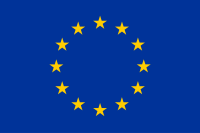Hi,
This is a bit different to what I’d normally send.
For a start, I’m writing something that’s inevitably going to be longer than I’d usually aim for. And it’s also the first of two emails I want to share on this subject.
That’s because I’m going to update you on our work in the Middle East and Ukraine – which I suspect you’d agree is too important to cut short.
I know it’s been a while since we shared what’s happening. It’s not that our partners haven’t been working night and day – but the truth is, in any ongoing conflict, there comes a time where we worry about the impact of sending daily or weekly updates. We’d run the risk of overwhelming you or contributing to any sense of crisis fatigue.
And the information we get can be difficult and distressing to hear about, so we need to get that balance right.
But faced with some pretty bleak milestones – more than 100 days of violence in Israel and the Occupied Palestinian Territory and nearly two years since the conflict escalated in Ukraine – we wanted to bring you up to speed.
So I’m going to share what we’ve been doing recently (and by ‘we’ I mean various Red Cross and Red Crescent societies and members globally).
And I’m going to start with what’s happening in Israel and the Occupied Palestinian Territory. Over the last three months we’ve witnessed death, destruction and displacement on a staggering level – it’s an unbearable human tragedy. These are just some of our most pressing concerns in Gaza:
1.7 million people have no home. They're living in makeshift shelters, cars or even out in the open. It’s freezing, so hypothermia is a real threat.
Most families barely eat one meal a day. Severe food insecurity is affecting 80% of the population – a number that’s only going to rise.
Disease outbreak is a very real risk. Largely driven by poor sanitation and an acute lack of clean drinking water.
Hospitals can’t run. There's no fuel. Hundreds of thousands of people no longer have access to healthcare.
Over 100 people taken from Israel are still being held captive. Very little is known about the conditions they’re in. Families are left tormented, imagining the worst.It’s clear that it’s an incredibly volatile, dangerous situation. And you’ve probably seen that some of our colleagues from the Palestine Red Crescent Society (PRCS), Magen David Adom in Israel (MDA) and the International Committee of the Red Cross (ICRC) tragically lost their lives while trying to save others.
Despite the risks, these teams along with the Egyptian Red Crescent Society (ECRS) continue to work tirelessly to help those affected by the conflict and alleviate suffering where they can. Here’s a few headlines on their response:
Providing emergency medical care and psychosocial support. Over 15,500 people in Gaza and over 3,800 in the West Bank have received emergency medical care. More than 38,100 people have been given psychosocial help.
Getting vital humanitarian aid across the border. The ERCS is playing a key role in getting items like food, water, milk, blankets, mattresses, hygiene kits and medicines over the Rafah crossing. Over 5,900 trucks have been delivered so far.
Setting up shelters. PRCS has set up 300 tents in Khan Younis and welcomed 190 families there, with the hope of expanding capacity to 1,000 tents, enough for 6,000 people.
Constructing a new field hospital. In collaboration with the Qatari Red Crescent, the PRCS is setting up a hospital in Rafah with 50 beds, an ICU and an operating room.
Continuing to call for hostage release. The ICRC continues to call for the immediate release of all hostages, and for access to them. They’ll do this until the hostages are safely home.There’s no question that the last 110 days have been extremely challenging, upsetting and divisive.
But it’s also shown why our principles of impartiality and neutrality are so important and why the Red Cross is vital in a crisis like this. We’re not here to take sides – we’re here to help people who are suffering.
I appreciate there’s a lot to take in here, but I hope it’s been a helpful summary. My next email will focus on Ukraine and will be landing in your inbox soon.
Until then, take care and thank you.
Katie
Katie Johnson
British Red Cross

